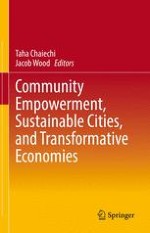2022 | OriginalPaper | Buchkapitel
Exploring Sustainable Meat Consumption Intentions in a Pakistani Collectivist Culture: Utilising the Theory of Planned Behaviour
verfasst von : Sadaf Zahra, Breda McCarthy, Taha Chaiechi
Erschienen in: Community Empowerment, Sustainable Cities, and Transformative Economies
Verlag: Springer Nature Singapore
Aktivieren Sie unsere intelligente Suche, um passende Fachinhalte oder Patente zu finden.
Wählen Sie Textabschnitte aus um mit Künstlicher Intelligenz passenden Patente zu finden. powered by
Markieren Sie Textabschnitte, um KI-gestützt weitere passende Inhalte zu finden. powered by
